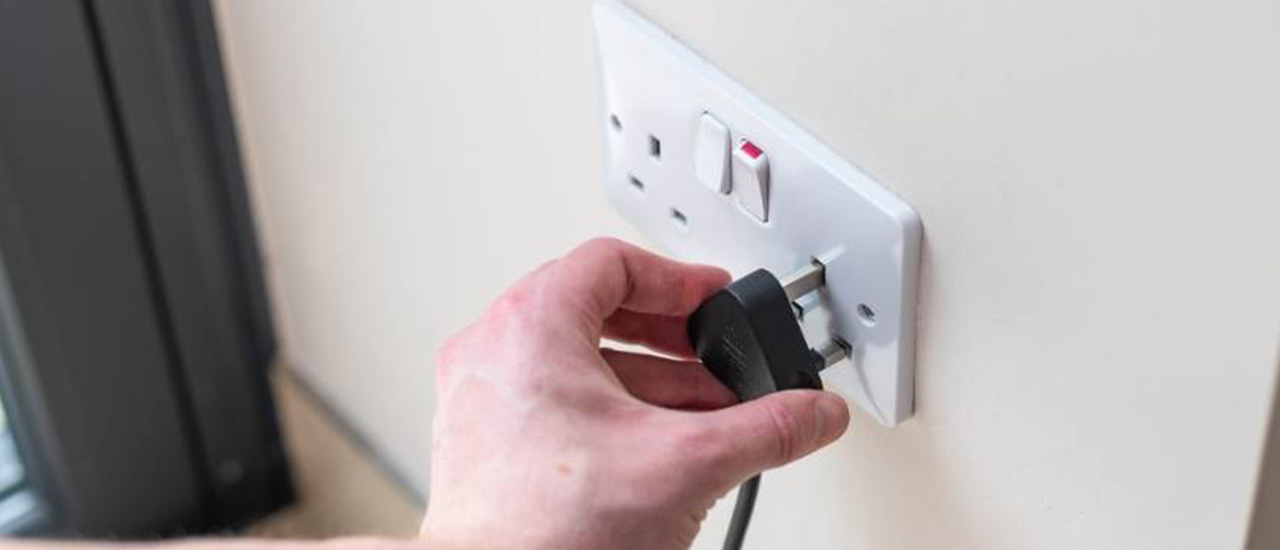The time it takes to charge an electric car fully can vary widely, from as little as 30 minutes to well over 12 hours. It depends on several factors, including the car battery size, the type of EV charger you use, and how much charge is already in the battery.
Whether you're charging at home or on the go, the right setup can make a big difference in how long you’ll need to plug in.
How long does it take to charge an electric car at home?
Charging an electric car at home can take anywhere from a few hours to overnight, with the average charging time taking around 8 hours. The time depends on the size of your EV’s battery and the type of charger you’re using. Home charging is slower than public charging, but it's the most convenient option for daily use.
How long does it take to charge an electric car with a 3-pin plug?
Charging your EV using a standard 3-pin plug socket (also known as a level 1 charger or a "granny charger") is the slowest way to charge an electric car. It typically delivers around 2.3kW of power, which means a full charge can take 18 hours or more for a car with a medium-sized battery.
While 3-pin plugs can be a handy backup, we don't recommend them for everyday use. Standard sockets aren’t built for continuous high-power loads, so long-term use could pose a safety risk, especially in older homes or if extension leads are used.
How long does it take to charge an electric car with a 7kW charger?
A dedicated 7kW EV home charger (also called a level 2 charger or wallbox) can charge most electric cars in 4 to 8 hours, adding around 25 miles of range per hour of charge. A typical 60kWh battery usually takes around 7 to 8 hours to fully charge from empty.
However, in practice, most EV drivers rarely let the battery run flat. Charging usually happens in shorter top-ups, much like how you charge your phone. Combined with smart EV charging scheduled overnight, this is one of the most efficient ways to keep your EV ready to go.

Want to save money on EV home charging?
Take advantage of cheaper rates and 100% renewable electricity with our special EV charging tariffs.
Discover EV tariffs
How long does it take to charge an electric car at a public charging station?
It can typically take anywhere from 30 minutes to over 12 hours to charge an electric car in public, depending on your battery and the type of public charger you use. The three most common types in Northern Ireland are fast chargers, rapid chargers, and ultra fast chargers.
Fast EV chargers (level 2)
Similar to a home wallbox, fast EV chargers typically deliver between 7kW and 22kW, meaning a full charge can take 2 to 6 hours. These are great for topping up slowly when you’re parked for a while, but not suitable if you need to charge in a hurry.
Charging time: 2 to 6 hours
Best for: Everyday charging, while parked for a few hours
Rapid EV chargers (level 3)
Rapid chargers typically deliver 43kW to 50kW, and can charge most EVs from 0 to 80% in around 45 to 60 minutes. Sometimes called DC fast chargers, they’re perfect for quick top-ups on the go, but frequent use can reduce your battery’s long-term health.
Charging time: 45 to 60 minutes for 0–80%
Best for: Quick top-ups when you’re short on time
Ultra rapid EV chargers (level 3)
Ultra rapid chargers offer speeds of 100kW to 350kW, and are the fastest way to charge. They can deliver around 30–50 miles of range in 10 minutes, or take your battery from 0 to 80% in 20 to 40 minutes. These chargers are best kept for long trips, as they’re more expensive and may increase battery wear over time.
Charging time: 20 to 40 minutes for 0–80%
Best for: Long journeys when speed matters most
Looking for public EV chargers near you? Use tools like Zap-Map, ESB EV Plug In, or PlugShare to find the nearest charge points across Northern Ireland.
Electric car charging time comparison
If you're wondering how long it takes to charge a specific electric car, it’s easy to estimate. All you need is the battery size (in kWh) and the charger power (in kW). Use this formula:
EV battery size (kWh) ÷ charger power output (kW) = estimated charging time (hours)
Below is a comparison table showing how long it takes to charge some of the most popular EV models in the UK and Northern Ireland. These figures assume you're charging from empty to full using different charger types.
Average Charging Time - Empty to Full (Hours)
| Electric car model | Battery type (kWh) | Slow charger (3-7 kW) | Fast charger (7 kW) | Fast charger (22 kW) | Rapid charger (43-50 kW) | Ultra rapid (100+ kW) |
|---|---|---|---|---|---|---|
| Nissan Leaf | 40 | 11 | 6 | 1.8 | 0.8 | N/A |
| Renault Zoe | 52 | 14 | 7.5 | 2 | 1 | N/A |
| Volkswagen ID.3 | 58 | 16 | 8 | 2.5 | 1.25 | 0.5 |
| Tesla Model Y | 75 | 20 | 10 | 3.5 | 1.5 | 0.7 |
| BMW iX3 | 82 | 22 | 12 | 3.75 | 1.75 | 0.8 |
Factors that affect EV charging speed
As mentioned, EV charging times vary depending on a few key factors. Here's what makes the biggest difference, and what you can do to optimise your charge.
Battery size
Larger batteries take longer to charge because they store more energy. For example, a 40kWh battery might take half the time of a 75kWh one. If your EV has a larger battery, consider charging overnight or during off-peak hours.
Charger output
Faster chargers deliver more power, measured in kilowatts (kW). A 7kW home charger is great for daily use, while a 150kW ultra rapid charger is better for long trips. Make sure the charger matches your driving needs.
Your car’s charging limit
Each EV has a maximum charge rate it can accept. Some older or smaller EVs won’t benefit from ultra rapid chargers because they can’t take in energy that quickly. Check your car’s manual or specs to find its charging limit.
Current charge level
Charging from 20% to 80% is quicker and more efficient than charging from empty to full. That’s why most EV drivers top up regularly rather than waiting until the battery is low.
Outside temperature
Batteries charge more slowly in cold weather. If possible, keep your EV in a garage during winter or precondition the battery before charging to reduce wait times.
Sharing the charger
When multiple EVs are connected to the same unit (common with load balancing at apartment blocks or workplaces), the power is split. If you're sharing a charger, expect longer charge times - or schedule your charging for quieter periods.
Frequently asked questions
-
Do fast EV chargers damage electric car batteries?
Frequent high-voltage DC charging has been linked with EV battery degradation, which can shorten battery life. Find out more in our guide to electric car batteries.
-
How long do electric cars hold their charge?
Electric cars hold their charge for months if they’re not being driven. When they are being driven, the charge will last for the duration of the EV’s range. This will depend on factors such as the battery capacity and the speed at which the EV is being driven. Find out more in our guide to how electric cars work.
-
Does it cost more to use a fast EV charger?
It can be more expensive to use a fast EV charger — but this will depend on the cost per kWh of electricity for the charger you’re using. When the electricity unit price is the same, the cost of charging a car is the same using any speed of EV charger. It only costs more time to use a slower charger.
Fast charging can be more expensive at public rapid and ultra-rapid charging stations if they’re charging a premium for the convenience of the service they provide. Learn more about the cost of running and charging an electric car. -
Is it better to charge an electric car with quick top-ups?
It’s generally recommended to maintain a charge level of 80% to extend EV battery life. For most people, this will be quick top-ups of charge but it depends on the sort of journeys you make and how far you travel each day. See more in our guide to charging an electric car at home.
-
How often should I charge an electric car?
That will depend on how you drive, the type of journey you make and how far you drive each day. To extend battery life it is recommended to maintain a charge level of 80%. This might require a charge every few days, regular charging top-ups or a near-full charge every night, depending on how your EV is used. Learn more about how the way you use your electric car impacts how often you need to charge it in our electric car buyers guide.
Want faster, safer EV charging at home?
At Power NI we offer a range of EV Home Chargers to suit every home and budget.
Discover EV chargers


